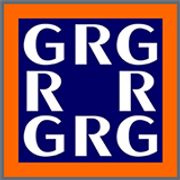A Brief Guide to Property Tax Assessments

Property tax assessments offer an estimate of the market value of a residential or commercial real estate property, which acts as the foundation for property tax bills. There is a process to follow and reasons for doing so, and building owners can challenge a determination. Below is a brief guide to understanding these assessments.
How Does It Work?
Tax assessments are usually done on the same date every year, but some locations choose every other year or every few years, especially if ownership changes hands. Governments will use revenue from taxes to support parks and recreation, public buildings, schools, government employee salaries, and departments like police and fire.
The process begins with a look at the fair market value, particularly on similar properties nearby. Taxes are calculated using rates given by the taxing authority, which is often called a multiplier or mill rate. This is one-thousandth of a currency unit, or in simpler terms, one dollar for every $1,000 of assessed value. Assessors multiply the assessed value by the mill rate and divide by a thousand.
Property value usually increases, which translates to a rise in your bill. If assessments go down, it’s because certain exemptions have been subtracted from the assessed value such as agricultural, veteran, senior, religious, or education property exemptions.
The Different Methods
 The replacement method, or cost method, estimates the cost for replacing a property based on rates of labor and materials. Depreciation is deducted while the land value is added.
The replacement method, or cost method, estimates the cost for replacing a property based on rates of labor and materials. Depreciation is deducted while the land value is added.
Another approach is the sales comparison method, which is based on prices of similar properties. The final number takes into account unique attributes that increase value—like a pool—or missing attributes that lower it. For example, if other properties have a pool and yours does not.
There is also the market method, which lenders use to appraise residential property for mortgages. The income method is usually used for commercial real estate, which means the amount of income generated is adjusted by factors like taxes, insurance costs, and operational expenses.
Can You Appeal?
As the owner, you can appeal an assessment if you don’t agree with the result. You must file your appeal as quickly as possible since certain governing bodies give small windows of time when this is allowed. The local tax assessor can provide details.
Appeals must be supported with documents such as real estate appraisals from similar properties that prove the numbers don’t match. Send all documents to the Department of Taxation and Finance.
For property tax services and commercial real estate assessments in Rochester, NY, and surrounding areas, trust Galvin Realty Group, Inc. John “Thomas” Galvin Jr. has been a commercial realtor and expert in real estate since 1970, opening the company in 1987 and providing specialties such as tax assessment challenges for his clients. As an all-inclusive company, their broad offerings make them a one-stop-shop for anything from traditional management to consulting and leasing. For questions about property tax assessments, call (585) 546-1290. Learn more about their services online.
About the Business
Have a question? Ask the experts!
Send your question

